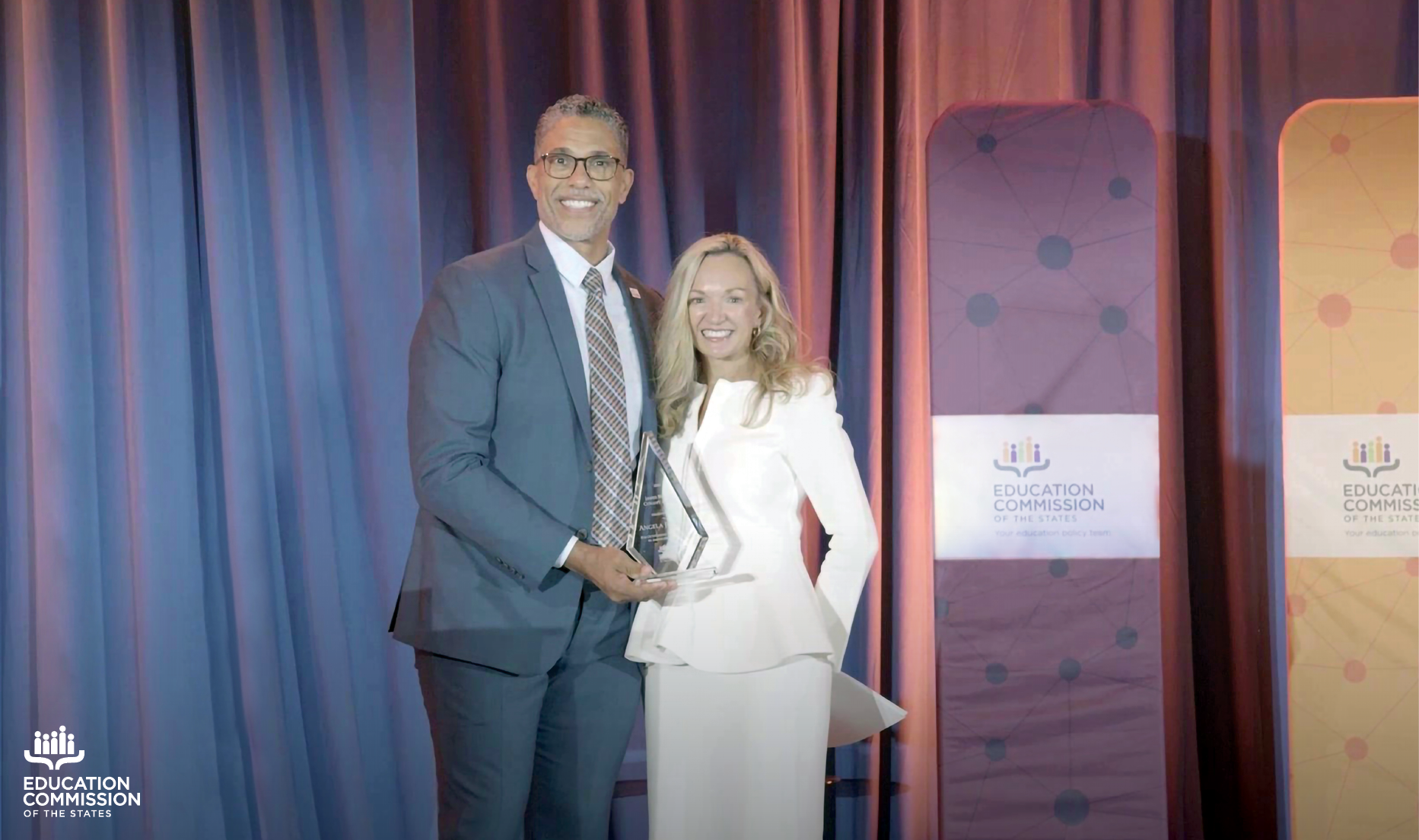At this year’s National Forum on Education Policy, math was among the topic highlights. Student outcomes in math remain below pre-pandemic levels, and the most recent Nation’s Report Card scores show little sign of recovery. The long-term consequences are not just academic; they’re economic. Research suggests the U.S. could expect to add more than $200 billion to the national economy each year just by improving math education.
That’s why we — state education leaders from Kentucky, Maryland, New York, Rhode Island, Texas and Utah — were excited to join national experts and partners in Washington, D.C. in June to discuss the state of math policy across the nation.
The convening, hosted by Education Commission of the States, didn’t aim to produce a single agenda; instead, it provided space to surface bold ideas, identify barriers and highlight effective policy strategies already in motion. Below we detail the key takeaways for fellow education leaders and policymakers.
1. Policy Momentum Is Building
States are moving from idea to action with urgency and bipartisan support. Leaders from Kentucky, Maryland, Texas and Utah shared significant legislative and implementation strides — from early numeracy legislation to accelerated Algebra I pathways.
Many drew inspiration from science of reading reforms states embraced across the country and called for similar urgency in addressing math. Several states are aligning their math requirements to that of early literacy efforts, including high-quality instructional materials and professional development. There is, however, a critical need to adapt approaches to math’s distinct demands relative to effective pedagogy, systems at scale, and professional practice.
2. Early Numeracy Is Foundational
Early numeracy is foundational for long-term success and is as essential as early literacy. Early numeracy is not exclusively focused on automaticity, or recalling math facts quickly like multiplication tables; being numerate requires automaticity alongside flexibility and accuracy in understanding math concepts. Challenges persist around the quality and alignment of screeners, diagnostic tools and assessments. Teacher confidence and preparation in early math remain uneven, signaling a need for targeted investments in both technical infrastructure and educator professional learning for elementary and secondary teachers and leaders.
With this in mind, multiple states — including Kentucky and Utah — have passed legislation requiring universal screeners, benchmark assessments and teacher professional development in the early grades.
3. Implementation Requires A Coherent State Strategy
Changing policy is only the beginning. States emphasized the importance of creating the right conditions for change. This includes:
- Creating a statewide culture that values math.
- Equipping teachers with curriculum-aligned professional development;
- Investing in coaching and support structures for teachers and leaders; and
- Building aligned and meaningful postsecondary pathways.
Across all of these, coherence — among state systems, local implementation and postsecondary expectations — emerged as a critical and ongoing challenge.
4. High-Quality Instructional Materials Are Just a Start
While many states have prioritized adoption of high-quality instructional materials, leaders agreed that materials alone won’t shift practice. Success requires:
- Embedded, ongoing and curriculum-specific professional development.
- Clear definitions of numeracy and fluency.
- Transparency about what high-quality instructional materials are and how they’re used.
- Guidance on the role and purpose of supplemental materials.
Leaders also pointed to the need for more intentional engagement with educators on how materials support — not replace — strong instructional practice.
What’s Next
Participants in the thinkers meeting expressed a growing demand for state leadership to support the infrastructure necessary for long-term, scalable progress. These opportunities include:
- Creating greater transparency and understanding for families about student progress and the purpose of math.
- Supporting the development of better aligned diagnostic and screener tools for math.
- Rethinking how we measure success — beyond standardized testing and advanced coursework — to include competency-based education and real-world application.
- Ensuring seamless transitions for students from kindergarten readiness through postsecondary pathways that reduce the need for remediation.
States play a pivotal role in building coherent, equitable systems that support math success at every stage of a student’s journey. Collaboration is key to maintaining this momentum. It’s time to truly solve the math policy equation.







